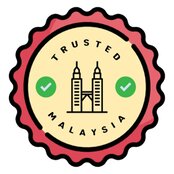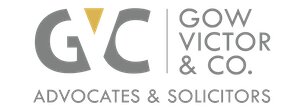Best Communications & Media Law Lawyers in Puchong Batu Dua Belas
Share your needs with us, get contacted by law firms.
Free. Takes 2 min.
List of the best lawyers in Puchong Batu Dua Belas, Malaysia
About Communications & Media Law in Puchong Batu Dua Belas, Malaysia
Communications & Media Law in Puchong Batu Dua Belas, Malaysia encompasses the legal regulations and standards that govern the media, telecommunications, and broadcasting industries within the region. This area of law is crucial for protecting free speech while ensuring that content providers and broadcasters operate within a legal framework that promotes fairness, accuracy, and ethical practices. With rapid advancements in digital media and telecommunications technology, this legal field plays a pivotal role in addressing challenges related to censorship, privacy, intellectual property, and competition.
Why You May Need a Lawyer
There are several scenarios where individuals or businesses might require legal assistance in Communications & Media Law. Common situations include:
- Drafting and negotiating contracts for media production, distribution, or broadcasting deals.
- Resolving disputes related to content ownership or intellectual property rights.
- Handling issues regarding censorship, defamation, or slander in media publications.
- Ensuring compliance with broadcasting regulations and licensing requirements.
- Addressing privacy concerns, such as unauthorized data collection or breaches.
- Navigating the legal complexities of online media and social network regulations.
Local Laws Overview
Puchong Batu Dua Belas, like other parts of Malaysia, adheres to national laws and regulations that govern the communications and media sectors. Key aspects include:
- The Malaysian Communications and Multimedia Commission (MCMC) Act 1998, which establishes the regulatory framework for the sector and the powers of the MCMC.
- The Content Code, which outlines broadcasting and content guidelines to ensure that media outlets adhere to standards of decency, accuracy, and fairness.
- Defamation laws which play a critical role in protecting individuals and organizations from false or malicious statements.
- Intellectual property laws that cover copyright, trademarks, and patents related to media content and technology.
- Privacy laws that address data protection issues, with particular relevance to digital communications platforms.
Frequently Asked Questions
What is the role of the Malaysian Communications and Multimedia Commission (MCMC)?
The MCMC is the regulatory authority responsible for overseeing the communications and multimedia industries in Malaysia. It enforces laws, manages licensing, and ensures industry compliance with regulatory standards.
What types of media are covered under Communications & Media Law in Malaysia?
The law applies to various forms of media, including television, radio, print, and digital platforms such as social media and online news portals.
What legal issues can arise from social media use?
Common issues include defamation, privacy violations, copyright infringement, and spreading false information, which may lead to legal action under Malaysian law.
How do defamation laws affect media publishers in Malaysia?
Media publishers need to ensure accuracy and fairness in their reporting to avoid defamation claims. Under Malaysian law, publishing false statements that harm someone's reputation can lead to legal action.
What should I do if my intellectual property rights are violated in media content?
Consulting a lawyer specializing in Communications & Media Law would be advisable to assess the situation, gather evidence, and take appropriate legal steps to protect your rights.
Are there licensing requirements for operating a radio or television station in Malaysia?
Yes, operators must obtain licenses from the MCMC to legally operate broadcast stations. Compliance with regulatory standards is mandatory for license holders.
How does the law address censorship in media content?
The Content Code sets guidelines to ensure content does not contain offensive material and adheres to community standards. Violations can lead to fines or restrictions.
What measures exist to protect personal data in communications and media platforms?
Malaysia has data protection laws that require organizations to safeguard personal information, particularly in digital communications, to prevent unauthorized access or breaches.
Can I record and distribute media content without permission in Malaysia?
No, recording and distributing media content without the necessary permissions can lead to legal repercussions, particularly if copyright rules are violated.
What should I consider before signing a media-related contract?
Before signing any contract, it's advisable to consult with a specialized lawyer who can review terms, ensure your interests are protected, and identify any potential legal pitfalls.
Additional Resources
The following resources and organizations can provide valuable information and assistance in the field of Communications & Media Law in Puchong Batu Dua Belas, Malaysia:
- Malaysian Communications and Multimedia Commission (MCMC)
- Intellectual Property Corporation of Malaysia (MyIPO)
- Bar Council Malaysia
- Media legal guidance from established law firms specializing in media law
- Academic publications and legal journals focusing on communications law
Next Steps
If you require legal assistance in Communications & Media Law, consider the following steps:
- Identify the specific legal issue you are facing and gather all relevant documents and information.
- Seek a consultation with a lawyer specializing in Communications & Media Law to understand your legal standing and options.
- Explore local law firms in Puchong Batu Dua Belas with expertise in media law.
- Prepare any necessary documentation or evidence to support your legal case or inquiry.
- Stay informed about ongoing legal obligations and issues in the communications and media industry to prevent future legal complications.
Lawzana helps you find the best lawyers and law firms in Puchong Batu Dua Belas through a curated and pre-screened list of qualified legal professionals. Our platform offers rankings and detailed profiles of attorneys and law firms, allowing you to compare based on practice areas, including Communications & Media Law, experience, and client feedback.
Each profile includes a description of the firm's areas of practice, client reviews, team members and partners, year of establishment, spoken languages, office locations, contact information, social media presence, and any published articles or resources. Most firms on our platform speak English and are experienced in both local and international legal matters.
Get a quote from top-rated law firms in Puchong Batu Dua Belas, Malaysia — quickly, securely, and without unnecessary hassle.
Disclaimer:
The information provided on this page is for general informational purposes only and does not constitute legal advice. While we strive to ensure the accuracy and relevance of the content, legal information may change over time, and interpretations of the law can vary. You should always consult with a qualified legal professional for advice specific to your situation.
We disclaim all liability for actions taken or not taken based on the content of this page. If you believe any information is incorrect or outdated, please contact us, and we will review and update it where appropriate.









